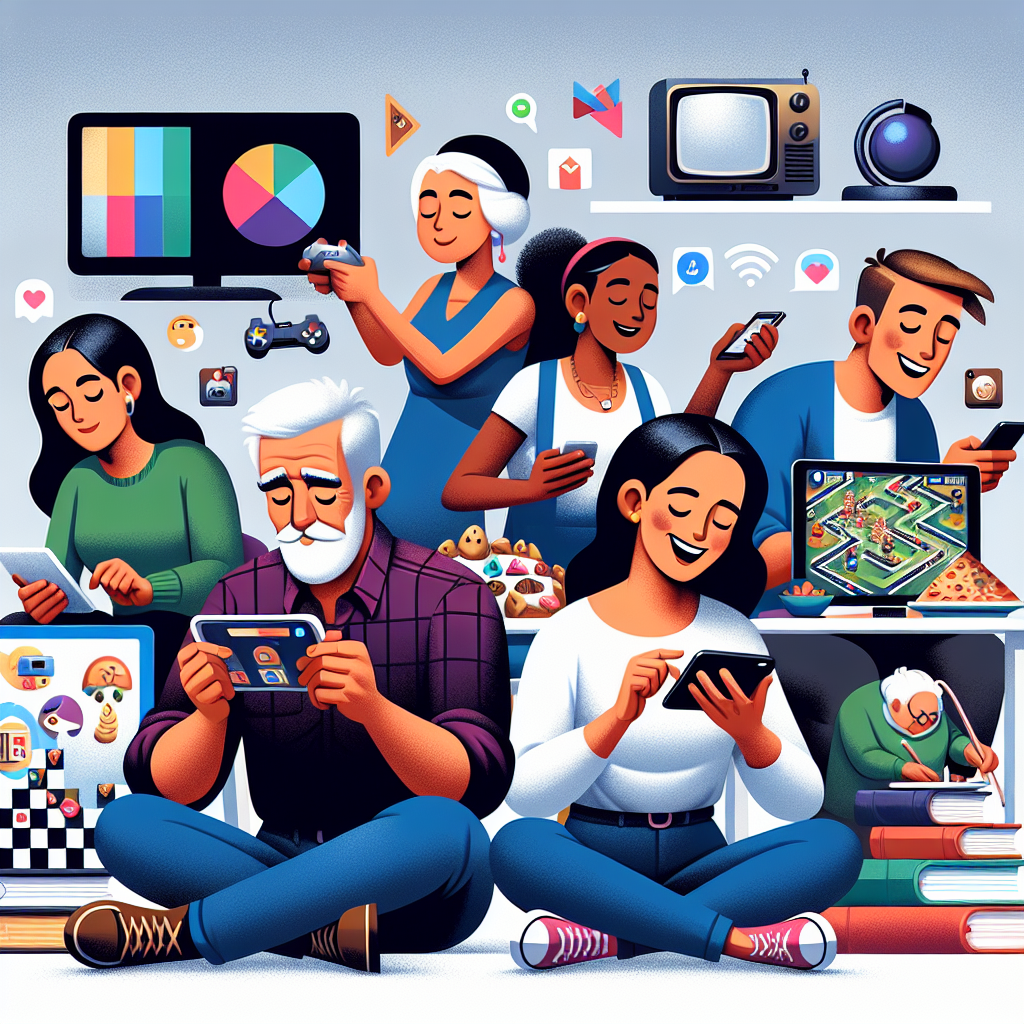The Role of Mobile Games in Modern Entertainment
The world of entertainment has significantly evolved over the past decade, and at the center of this transformation is the rise of mobile games. The infiltration of digital technology into our daily lives and advancements in mobile devices have made gaming on the go an irresistible trend. Mobile games now possess a commanding presence within the entertainment industry, positioning it as an established subset of contemporary digital entertainment.
Today, mobile gaming not only rivals traditional modes of entertainment like film, music, and television, but in various aspects, it has also outperformed them. From casual games like Candy Crush to more complex ones like PUBG Mobile, the mobile gaming industry has managed to engage a wide spectrum of audiences spanning different age groups, geographies, and demographic segments.
Mobile Gaming – A Closer Look
Mobile games are video games designed for smartphones, tablets, and other handheld devices. Simple touchscreen interfaces, easily downloadable from app stores, and often free or available at minimal costs, these games are designed for short, appealing play sessions that can fit right into our busy schedules. Furthermore, multiplayer mobile games also foster social interactions, redefining the ways we stay connected and engaged with our friends and the global gaming community.
Contemporary Entertainment Landscape
In today’s digital age, entertainment is no longer defined solely by watching movies or television shows or listening to music. Consumers are now seeking interactive environments where they can engage actively and form part of the content creation. This is where mobile games have a crucial role to play. They allow users to immerse themselves by creating their characters and plots, thus providing a much richer, personalized entertainment experience.
Furthermore, the leap in mobile technology has made innovative game mechanics and immersive graphics possible on portable devices. Today’s mobile games like Fortnite offer similar – if not superior – levels of interactive experience as compared to traditional console games. This development has successfully opened up gaming to whole new audiences who had previously been separated from the console and PC gaming space.
The Market of Mobile Games
It’s not just the fans but experts also view mobile gaming as the future of entertainment. According to Newzoo’s Global Games Market report, the mobile gaming segment generated $77.2 billion revenue in 2020, representing 49% of the global games market. This market success is a testament to mobile gaming’s impact and relevance in the current entertainment landscape.
The convenience of mobile games, combined with their increasing sophistication, is drawing in more consumers – from hardcore gamers to more casual players seeking entertainment in small pockets throughout their day. The rise of competitive multiplayer games and the eSports scene on mobile platforms solidifies the future of mobile gaming in the entertainment industry.
Conclusion
The rise of mobile gaming marks a significant shift in the entertainment industry. With its wide reach, personal nature, and the sheer diversity in content, it has opened up unlimited possibilities for fun and relaxation. Although traditional forms of entertainment continue to hold their appeal, the rapid advancement of mobile gaming and its convenience are indications that it will continue to play a vital role in the entertainment industry for years to come.
Frequently Asked Questions
- Why are mobile games so popular?
Mobile games are popular because of their accessibility, low cost, and wide range of gaming genres appealing to diverse players. They’re also often multiplayer, enhancing social interaction. - How have mobile games affected the entertainment industry?
Mobile games have revolutionized the entertainment industry, offering users an interactive platform for entertainment. They have also contributed significantly to revenue generation in the gaming market. - What’s the future of mobile gaming in the entertainment industry?
While it’s hard to predict the future precisely, current trends suggest that mobile gaming will continue to grow and possibly become the most dominant segment in the gaming industry. - How do mobile games contribute to interactive entertainment?
Mobile games foster players’ creative thinking as they involve strategy-building. They also encourage social interaction through multi-player modes. - Are mobile games only for children?
No. Mobile games cater to all age groups, from small kids to adults. The wide spectrum of mobile games available ensures that there’s something for every age and interest group.

